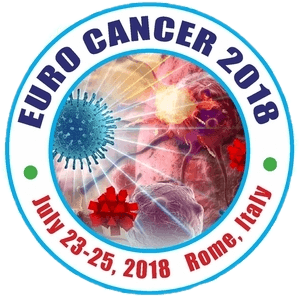
Ning Deng
Jinan University, China
Title: A new disulfide-stabilized diabody against bFGF and the inhibition of cancer
Biography
Biography: Ning Deng
Abstract
Angiogenesis plays a critical role in tumor growth. Fibroblast growth factor-2 (FGF-2) is one of the most important angiogenic factors. The over-expression of bFGF plays a crucial role to promote tumor growth, progression and metastasis. Neutralizing antibodies against FGF-2 may suppress the growth of tumor cells by blocking the FGF-2 signaling pathway. In our lab, we scanned human anti-bFGF antibody from the phage antibody library. The results showed that the human anti-bFGF antibody could significantly inhibit the tumor angiogenesis and inhibit the tumor growth and migration. Based on this antibody, a newly small molecular antibody of disulfide-stabilized diabody (ds-Diabody) against bFGF was constructed by site-directed mutation and overlap extension PCR (SOE-PCR) at the position of VH44 and VL100 in the scFv. The ds-Diabody was expressed in Pichia pastoris system. We found that the ds-Diabody against bFGF could maintain good antigen binding activity and stability in vitro and in vivo. The ds-Diabody against bFGF could efficiently suppress the proliferation, migration and invasion of human lung cancer (A549 cells) and breast cancer (MCF-7 cells), inhibit bFGF-induced activation of downstream signaling regulators, phospho-Akt and phospho- MAPK. In the nude mouse xenograft model, the ds-Diabody against bFGF could significantly inhibit tumor growth, tumor angiogenesis and lymphangiogenesis. The ds-Diabody against bFGF showed stability in vivo and could more effectively suppress the tumor growth through blockade of bFGF signaling pathway and inhibition of tumor angiogenesis, which may make it a potential therapeutic candidate antibody drug for human lung cancer therapy.

